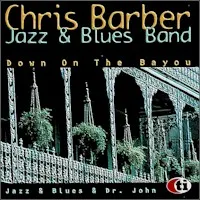Time: 53:00
Size: 121.4 MB
Styles: Bossa Nova, Samba, Brazilian jazz
Year: 2006
Art: Front
[4:01] 1. Satellite Bar
[2:55] 2. Denise Bandeira
[3:16] 3. Ela Vai Pro Mar
[4:09] 4. Meu Tudo Pra Mim
[4:35] 5. La Piu Pella Del Mondo A Voz Do Morro
[3:30] 6. Polaroides
[4:52] 7. Samba E Tudo
[4:40] 8. Valeu
[3:52] 9. Out Of The Blues
[3:45] 10. A Noite E Meu Opio
[4:35] 11. Ledusha Com Diamantes
[4:46] 12. Slow Motion Bossa Nova
[3:58] 13. Sorte
Popular guitarist, singer, songwriter Celso Fonseca teams up with noted lyricist Ronaldo Bastos, who contributed to Milton Nascimento's many recordings, to provide a wonderful, as well as irritating, series of exceedingly mellow tunes. Fonseca has lately moved into hip and modern music, including rap and electronic elements, but here he is in traditional mode of bossa nova and samba. Varied from sparse to lush arrangements with the inclusion of sax, trumpet, trombone, flute, and strings, and of consistant moderate tempo, this CD will alternately lower your blood pressure and smooth your jangled nerves, taking you to a tropical beach, a warm sun, and a cool breeze; and then being dragged along the sand. Beautiful and romantic songs flip/flop with trite, awkward, and imitative pieces. Please note that this album is a "Best of...", being selections from three earlier recordings: Paradiso, Sorte, and Juventude. An especially interesting track is a Brazilian blues, "Out of Blues"; my favorite, because of its percussion, is "La Piu Bella del Monde". Why do I still give 5 stars? Because the music is so varied that it keeps our interest, and because the changing effects on our emotions supports the sonic fun. You may hear the complete songs on Fonseca's web site. While an import, I still do not know why it, and so many Brazilian CDs, are so expensive, here for an anthology. ~By Dr. Debra Jan Bibel/Amazon
Polaroides





